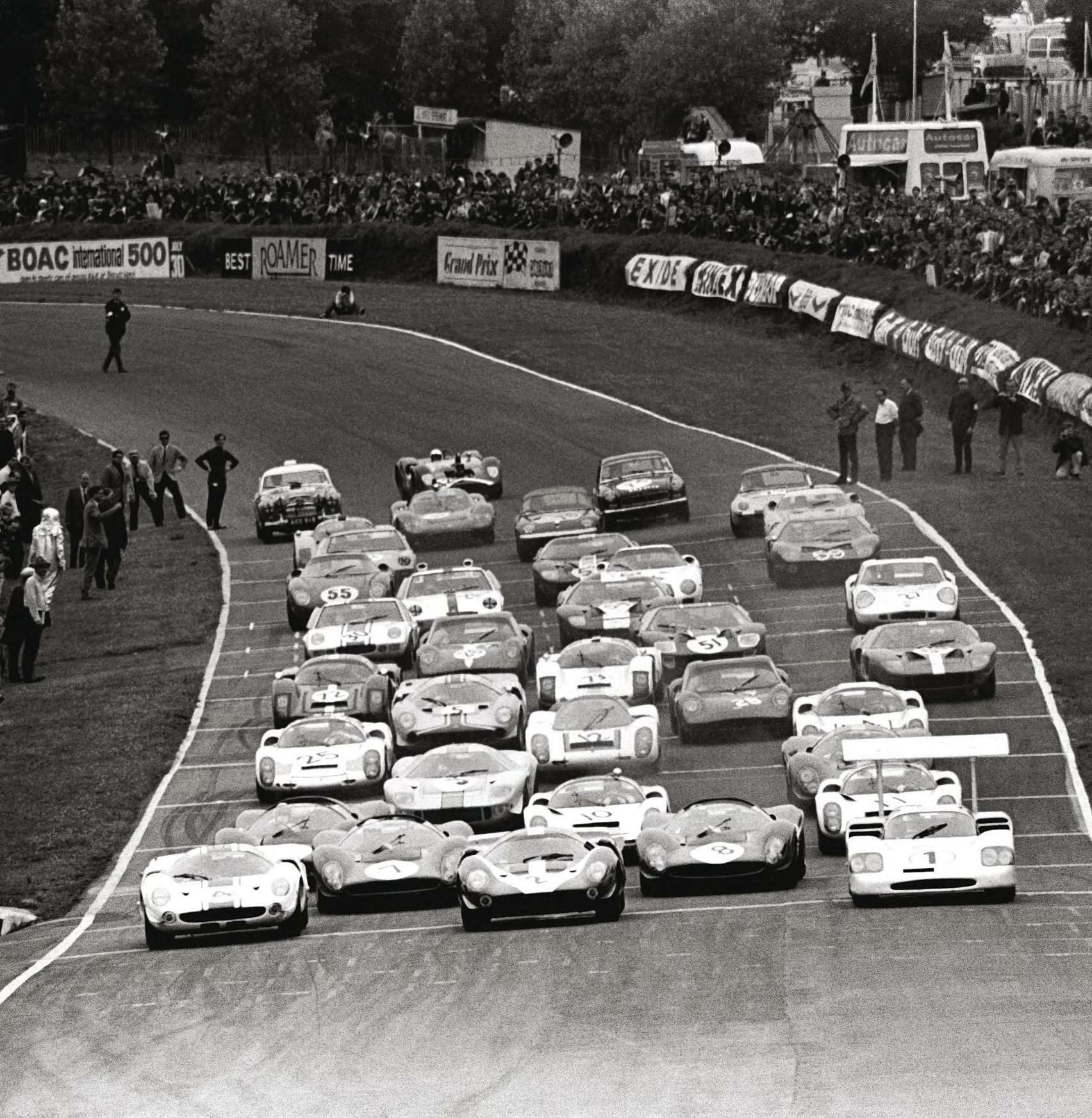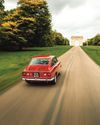
For British fans in the late 1960s, the easiest and best way to witness the golden era of the World Sportscar Championship was with a pilgrimage to Brands Hatch at varying times of the year. For when the new BOAC International '500' concluded the season bizarrely early in the summer of 1967, it returned top-line endurance racing to Britain for the first time in years.
'I am certain,' wrote British Overseas Airways Corporation chairman Sir Giles Guthrie in his programme notes, 'that the BOAC "500" will immediately take its place in popularity with Le Mans, the Targa Florio, the Nürburgring and the other classics which make up this championship series.'
Former air racer Guthrie had spent the five paragraphs leading up to that rather hopeful conclusion by trying to explain the connection between the BOAC and motorsport, only to effectively land on the illuminating idea that racing drivers travel a lot. There was form, though, because Ford had made sure the world knew it flew the GT40 to the United States with BOAC for a New York Auto Show preview night on its launch in 1964.
The fixture certainly made a name for itself in the years that followed, if not one that endured - in more ways than one - quite like those Guthrie had mentioned. It also returned '500' to the name of a British race for the first time since WW2 - the Tourist Trophy had been around 500 miles long, but more by luck than design. In fact, motorsport has had a mild affliction with the number 500 for more than a century. In 1911, drivers of cars with capacities just shy of 10 litres cheated death for 200 laps around a 2.5-mile brick-paved bowl in Indianapolis - which, rather neatly, resulted in 500 miles. Some 112 years and 107 runnings later it remains arguably the biggest race in America, alongside Daytona's own 500-mile event for stock cars. That relative newcomer didn't kick in until as recently as 1959.
This story is from the {{IssueName}} edition of {{MagazineName}}.
Start your 7-day Magzter GOLD free trial to access thousands of curated premium stories, and 9,000+ magazines and newspapers.
Already a subscriber ? Sign In
This story is from the {{IssueName}} edition of {{MagazineName}}.
Start your 7-day Magzter GOLD free trial to access thousands of curated premium stories, and 9,000+ magazines and newspapers.
Already a subscriber? Sign In

RAY HILLIER
Double-chevron oddity proves a break from the norm for this Crewe specialist

SHORT BACK & GLIDES
Eccentric enthusiast Captain RG McLeod's series of Manx-tailed Bentley Specials reached its zenith with this unique S2 Continental.

People's choice
The diminutive but multi-million-selling Fiat 850 packed a remarkable diversity of form and function into its compact footprint

PLASTIC BREAKS FROM THE NORM
Glassfibre revolutionised niche car-body production, but just occasionally strayed into the mainstream.

A SENSIBLE SUPERCAR
The cleverly conceived four-seater Elite secured Lotus a place at the big players' table, but has it been unfairly maligned since then?

"I had a habit of grabbing second place from the jaws of victory"
From dreams of yachting glory to the Le Mans podium, via a stint at the top of the motorsport tree, Howden Ganley had quite the career

Still going strong
Herbert Engineering staked its reputation on the five-year warranty that came with its cars. A century on, this Two Litre hasn't made a claim

One for the kids
General Motors was aiming squarely at the youth market with the launch of the Pontiac GTO 60 years ago, and its runaway success popularised the muscle-car movement

A NEW BREED OF HERO
Launched at the turn of the millennium, the GT3 badge has already earned a place alongside RS, CS and turbo in Porsche lore.

Brits with SIX appeal
The straight-six engine is synonymous with a decades-long legacy of great British sports cars. Six variations on the sextet theme convene for comparison